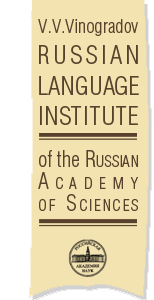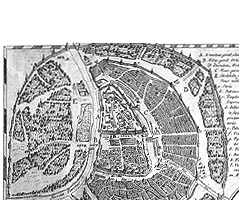 |
|
 |
 |
 |
 |
|
Fear, Laughter, and Pity: Emotions in Language, Culture, and Art
A book, a poem, a film, a concerto, or a painting infect us with feelings. We know this for a fact and take it for granted. But when we look closer at this phenomenon, we realize that it is full of mysteries: why is it that humans are capable of loving or hating literary and cinematic characters, sympathizing with them, fearing them or for them, being sad or happy on account of fiction – something completely immaterial and imaginary. By means of what psychological and literary means is this achieved, how exactly do various art forms represent and induce emotions? Why do we derive aesthetic pleasure from being saddened or even horrified? What makes some emotions “translatable”, i.e. easily transferable from culture to culture, and others specific to a particular national or cultural tradition? The goal of this course it to answer these questions by bringing together the evidence from various domains of knowledge bearing on the relation between emotions and arts: literary analysis, cognitive science, linguistics, and cultural studies. The primary material is drawn mostly from Russian literature, folklore and art, with frequent excursions into American and European film. The authors and directors include: Gogol, Tolstoy, Dostoevsky, Chekhov, Tarkovsky, Chaplin, Hitchcock, Murnau. The course focuses on three basic emotions: fear, laughter, and pity, and is roughly divided into three respective units. Each unit begins with an analysis of the emotion's psychological and cognitive basis, proceeds to its representations in everyday language and folklore, and ends with a detailed emotive analysis of literary texts or films.
Course evaluation:
Attendance and participation: 15 %
FEAR presentation: 15 %
LAUGHTER presentation: 15 %
Presentation of the final paper: 20 %
Final paper: 35 %
Required Readings:
Aristotle. Poetics (translated and with a commentary by George Whalley), edited by John Baxter and Patrick Atherton. Montreal; Buffalo: McGill-Queen's University Press, 1997.
Anna Wierzbicka. Emotions across Languages and Cultures. Cambridge: Cambridge University Press.1999.
Nikolai Gogol. The Collected Tales of Nikolai Gogol (translated by Richard Pevear, Larissa Volokhonsky). Publisher: Knopf Doubleday Publishing Group, 1997.
Course reader (including):
Scholarly books and papers.
Excerpts from: Mikhail Bakhtin. Rabelais and his world (translated by Hélène Iswolsky) Bloomington, Ind. : Indiana University Press, 1984.
Excerpts from: Henri Bergson. Laughter: an Essay on the Meaning of the Comic.
Excerpts from: Georgii Fedotov. Letters on Russian culture. In Russian fate and sins. Saint-Petersburg. 1992.
Excerpts from: Norman Holland. Literature and the Brain. PsyArt Foundation, 2009.
Excerpts from: Zoltan Kövecses. Metaphor and Emotion: Language, Culture, and Body in Human Feeling. Cambridge: Cambridge University Press. 2000.
Excerpts from: Joseph LeDoux. The emotional brain: the mysterious underpinnings of emotional life. New York, NY: Simon & Schuster, 1996.
Excerpts from: Viktor Raskin. Semantic Mechanisms of Humor. Dordrecht - Boston - Lancaster: D. Reidel,1985.
Excerpts from: Anna Wierzbicka. “Dusa `soul', toska `yearning', sud'ba `fate': three key concepts in Russian language and Russian culture”, in Metody formalne v opisie jezykow slowianskix. Zygmunt Saloni, ed. Bialystok: Dzial Wydawnitctw Filii UW. 1990.
Literary works.
Anton Chekhov, House with a Mezzanine, Grasshopper. In Stories of Anton Chekhov (translated by Richard Pevear, Larissa Volokhonsky). Publisher: Random House Publishing Group, 2000.
Excerpts from: Daniil Kharms. Today I wrote nothing: the selected writings of Daniil Kharms (translated by Matvei Yankelevich). Imprint New York : Overlook Duckworth, 2007.
Excerpts from: Jurii Olesha. Envy (translated by Marian Schwartz). New York Review Books, 2004.
Excerpts from: Leo Tolstoy. Anna Karenina (translated by Richard Pevear, Larissa Volokhonsky). Penguin books. 2002.
Excerpts from: Mikhail Zoshchenko. Galosh and other stories (translated by Jeremy Hicks). Overlook Press, 2009.
Course description
Week One.
1. INTRODUCTION
Approaches to Emotions. Emotions in Cognitive Science, Philosophy, Cultural Studies, Aesthetics. Notion of Basic Emotion. Representation of emotions VS. induction of emotions in art.
UNIT 1: FEAR.
2. Fear in Cognitive Science and Philosophy.
Types of Fear. Evolutionary approach to fear. Emotional VS. rational in fear. Cultural display rules. Aristotle on fear in tragedy.
Reading:
Aristotle, “Poetics” (excerpts)
Week Two.
1. Fear in Language and Folklore.
Fear in metaphor. Cultural attitudes to fear. Fear-inducing genres in folkore: Slavic spook stories, American campfire stories. Federico Garcia Lorca on death and threat lullabies.
Reading:
A. Wierzbicka, “Emotions across languages and cultures” (excerpts)
On-line readings and viewings: F.G. Lorca, “On lullabies”
On-line collection of folk horror stories (strashilki and campfire stories)
Viewing: Lullabies of the world, online collection
2. Fear in Literature
Representation and induction of fear in literature. Notion of Suspense. Supernatural fear.
Folk, fantasy and horror in Nikolai Gogol.
Reading: N. Gogol, “Vij”, “Terrible Vengeance”
Week Three.
1. Fear in Visual Arts and Film.
Mechanisms of fear induction. The Last Judgment in Painting: Signorelli, Michelangelo, Bosch. Understanding the popular appeal of horror. Analysis of Horror films.
Viewing: Excerpts from Nosferatu, Cabinet of Dr. Caligari, Exorcist, Shining, Psycho.
Reading: Holland, Norman N. Literature and the Brain. PsyArt Foundation, 2009.
2. Student Presentations
Close reading of film or literary fear-inducing excerpts.
UNIT 2: LAUGHTER.
Week Four.
1. Laughter in Cognitive Science and Philosophy.
Theories of humor: evolutionary, social, psychological, cognitive views. Shared mechanisms of fear and laughter induction. What is funny? Notions of humor, irony, sarcasm.
Reading:
H. Bergson, “Laughter: an Essay on the Meaning of the Comic” (excerpts).
A. Wierzbicka, “Emotions across Language and Cultures” (excerpts).
2. Laughter in Folklore.
Age, social, national differences in folk humour. Political, ethnic, professional jokes. Joke cycles. Pranks and Taunts.
Reading:
Viktor Raskin. “Semantic Mechanisms of Humor” (excerpts).
On-line collection of American, French, German, Japanese, Russian jokes.
Week Five.
1. Laughter in literature.
Mikhail Zoschenko and Daniil Kharms. Humour as social critique. Absurdist humour.
Reading:
M. Zoshchenko, “Galosh and other stories” (excerpts).
D. Kharms, “Today I wrote nothing: the selected writings of Daniil Kharms” (excerpts).
2. Mikhail Bakhtin on Laughter.
Carnival culture, reversal of the high and the low. Humour as Violation of taboos. Physiological humour.
Reading:
M. Bakhtin, “Rabelais and his world” (excerpts)
Viewing: excerpts from A. Tarkovsky's “Andrei Rublev”, excerpts from Chaplin's «Great Dictator»
Week Six.
1. Student Presentations on joke cycles.
Find similarities and differences between Russian and American joke cycles.
UNIT 3: PITY AND BEYOND
2. Approaches to pity and empathy.
Neuropsychological approaches to empathy. Empathy as pain-sharing. Induction of empathy. Metaphors of empathy.
Reading:
Aristotle, “Poetics” (excerpts).
A. Wierzbicka, “Emotions across languages and cultures” (excerpts on pity).
Week Seven.
1. Special role of pity in Russian culture and literature.
Pity, self-pity and empathy. Pity in Dostoevsky.
Reading:
G. Fedotov. Letters on Russian culture (excerpts).
F. Dostoevsky. Excerpts from “Brothers Karamazoff”, “Poor folks”.
Week Eight.
1. Approaches to Disgust.
Neuropsychology of disgust. Evolutionary role of disgust. Developmental stages of disgust.
Reading:
A. Wierzbicka, “Emotions across languages and cultures” (excerpts on disgust).
Z. Kovecses, “Emotion and metaphor” (excerpts).
2. Disgust in folklore and literature.
Disgust in children's folk poems. American and Russian gross poems. The categories of ugly and disgusting in Postmodern aesthetics.
Reading:
Vladimir Sorokin “Norma” (excerpts).
On-line collection of children's gross poems.
Viewing: Excerpts from S. Eisenstein “Battleship Potyomkin” (maggots sequence)
Week Nine.
1. Jealousy and Envy.
Concepts of jealousy and envy across languages and cultures. Jealousy and Envy in Russian Literature.
Reading:
D. Konstan. Emotions of the ancient Greeks (excerpts).
L. Tolstoy, “ Anna Karenina” (excerpts).
Ju. Olesha, "Envy" (excerpts).
2. Sadness in Russian culture and Literature.
Types of sadness across language and cultures: nostalgia, depression, grief, sodade, spleen, melancholy. Sadness as a prominent Russian concept. Emotional effect of Chekhov's short stories.
Reading:
Wierzbicka, Anna. 1990. “Dusa `soul', toska `yearning', sud'ba `fate': three key concepts in Russian language and Russian culture”.
A. Chekhov, “House with a Mezzanine”, “Grasshopper”.
Week 10.
1. Conclusion.
Final discussion. Summarizing the ideas and concepts of the course. Evolution of emotions. Emotions in today's world. Emotional and Rational in contemporary public discourse and mass culture.
Reading:
Aristotle, “Poetics” (excerpts).
A. Wierzbicka, “Emotions across languages and cultures” (excerpts on pity).
On-line collection of video clips and newspaper excerpts.
2. Student Presentations of their papers. Emotive analysis of a literary or cinematic fragment.
|
|
[Go to the Home page of the Russian Language Institute]
V. V. Vinogradov Russian Language Institute of the Russian Academy of Sciences
119019, Moscow, Volkhonka str, 18/2
Contacts: Valentina Apresjan at valentina.apresjan@gmail.com, Anastasia Kuznetsova at av_kuznetsova@mail.ru
|



